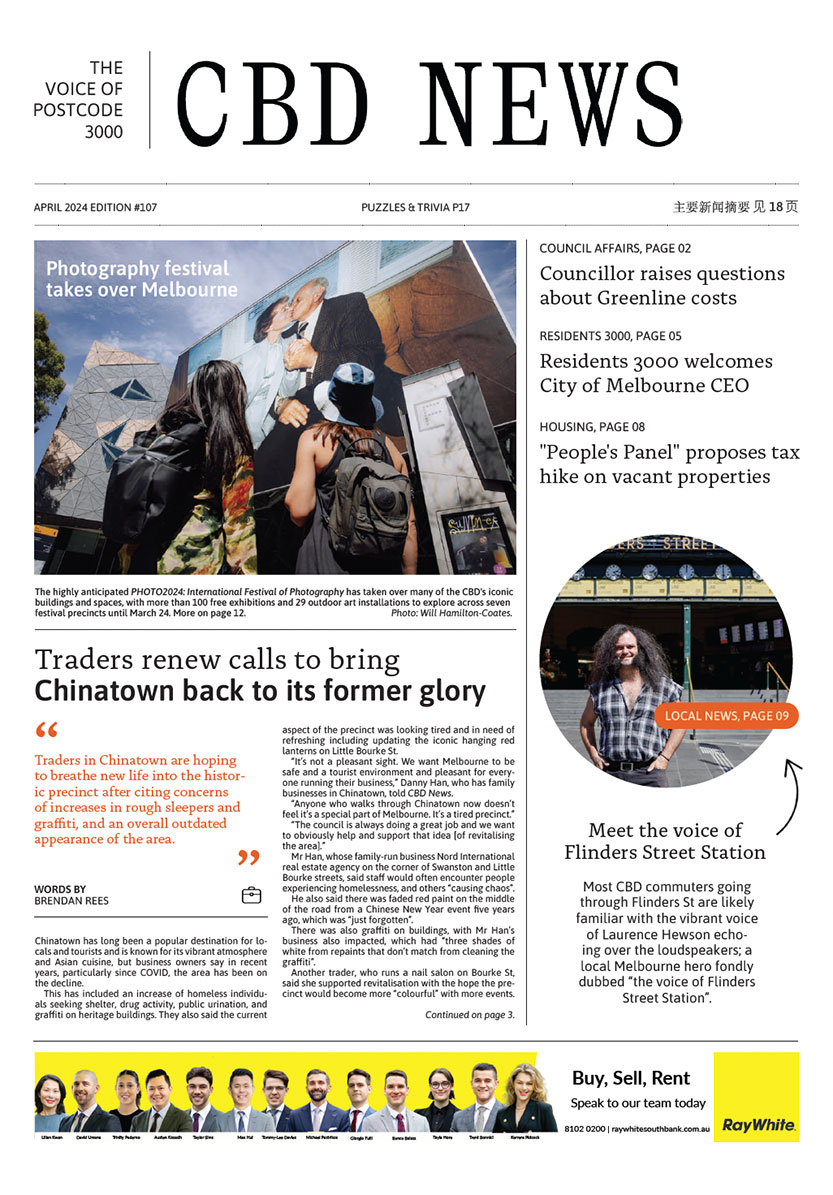International students reach out to residents
By Meg Hill
A group of international students has recently launched a project aimed at connecting their communities to local resident groups in the City of Melbourne.
International students have been hit hard by the pandemic and lockdown in Australia. Lockdowns have pushed many out of work and, unlike Australian citizens, international students are ineligible for government support programs like JobSeeker and JobKeeper.
The City of Melbourne is home to 30,000 international students. In May the council announced a food voucher program for international students but was forced to cap the program – which was intended for 1000 students – after 17,000 applied.
The international student community was already vulnerable to social isolation pre-pandemic. With in-person university life swept aside, as with most other social and work opportunities, the situation has become extreme.
The group of students from the University of Melbourne were asked to assist the City of Melbourne to address difficulty integrating the local international student and residential communities, through a program run by Study Melbourne.
Soham Chopra, an international student from India who worked on the initiative, only moved to Melbourne weeks before the pandemic began.
“I came to Australia in February to study my master’s in management. Australia seemed like one of the best countries for education and the University of Melbourne ranked really high,” he said.
“It’s been a very unexpected start to life here. The first four weeks, before lockdown, I was making friends and going out, but after that it’s been very start and stop.”
“I haven’t really seen Melbourne properly.”
Mr Chopra said, although he felt supported by the university and had received a university grant, the situation was still tough.
“Financially it’s been tough because obviously back home in India they’ve been hit really hard as well. I was planning to work here but the pandemic started too soon, and I wasn’t able to make any concrete arrangements.”
The team of six students – from India, Taiwan and China – reached out to the five biggest residents’ groups in the area and surveyed the international student community.
“We had meetings with the Parkville Residents’ Association, the Carlton Residents’ Association, the Southbank Residents’ Association, the Kensington Residents’ Association and East Enders residents’ group,” he said.
“Through this research we eventually suggested five initiatives for the City of Melbourne.”
He said the first was to encourage residents’ groups to include formal representation for international students.
“The existing committee of the resident groups had a lot of people from the community but there were no students,” he said.
“We felt that this representation of international students in the committee could help as a bridge to convey to them what the students in the area really needed and how they could cater to that.”
Second was to encourage residents’ groups to promote themselves at university events.
“We found that for international students, one of the main sources of info is the university, so we felt that residential groups could be more involved in o-days at universities and events like that,” he said.
The third and fourth suggestions were for the groups to set up mentoring and friendship programs – to create formal and educative relationships but also to address social isolation.
The fifth suggestion was for the residents’ groups to have centralised information programs, on websites or apps, to promote and list initiatives and activities for students to access. The group even suggested that students studying relevant skills could curate and run the programs.
Mr Chopra said the team enjoyed the opportunity to engage with the residential community through their project and work to bridge a gap for future students.
“The entire experience for us was absolutely amazing because we ended up having a conversation with different members of the community who make up the residents groups, and they all have different experiences and backgrounds, and we got to present our research to the City of Melbourne who we think will play an active role in trying some of the initiatives,” he said •

Backloading across borders with Transcorp – navigating interstate moves with ease






 Download the Latest Edition
Download the Latest Edition